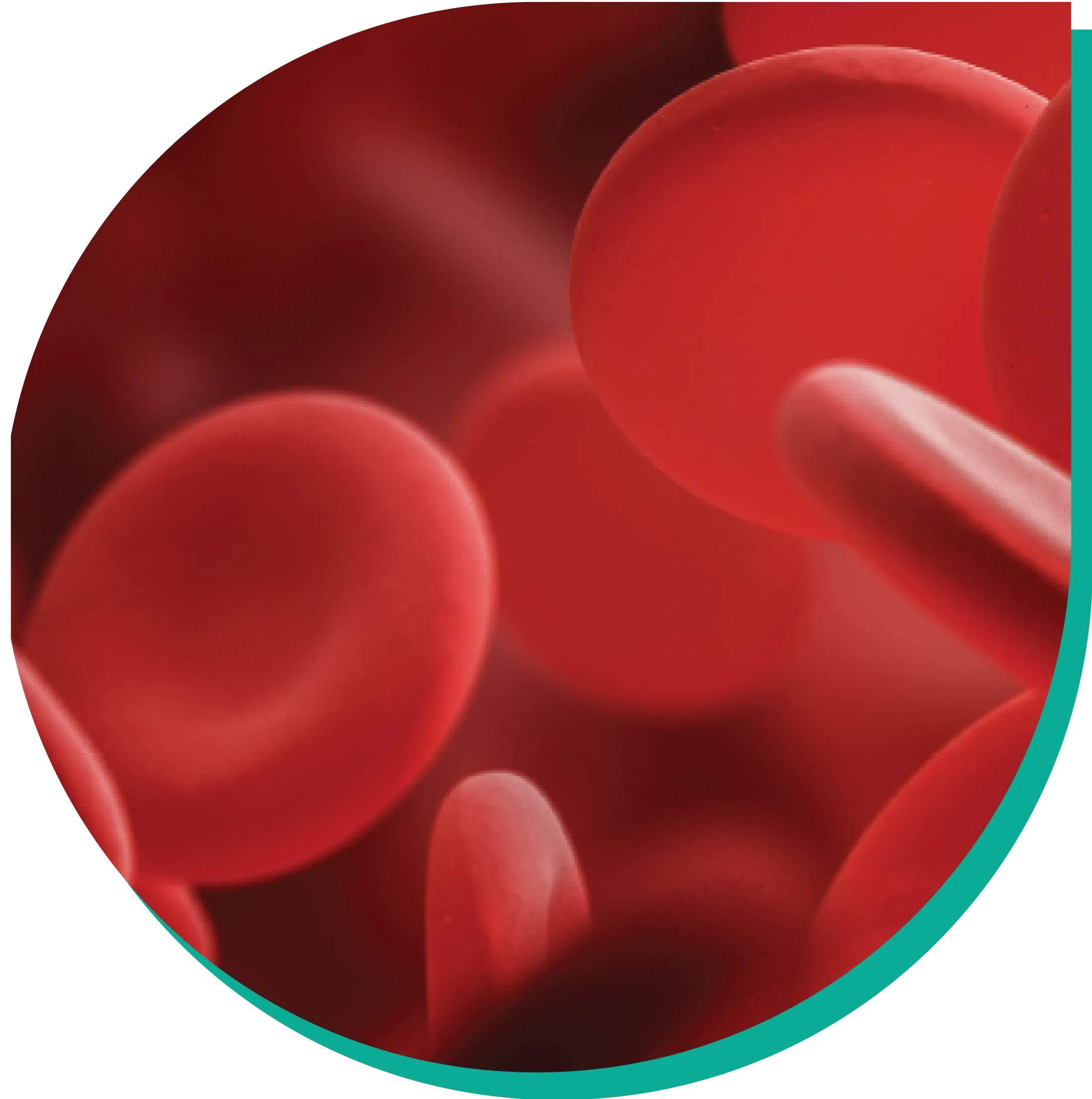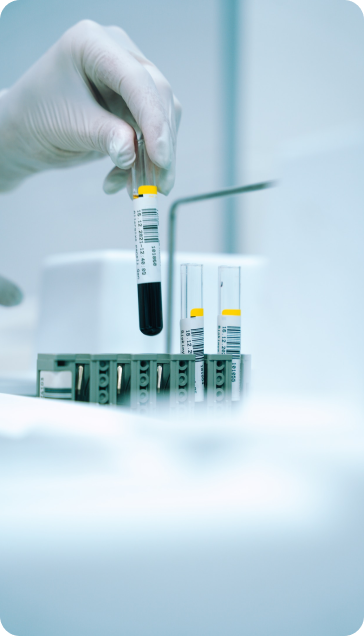
Al Borg Diagnostics
Sickle Cell Disease
What is Sickle cell disease, how it occurs?
It is an inherited blood disorder affecting red blood cells. Normal red blood cells contain hemoglobin A. People with sickle cell disease have red blood cells containing mostly hemoglobin S, an abnormal type of hemoglobin. These red blood cells become sickle-shaped (crescent-shaped), and have difficulty passing through small blood vessels.
How common is sickle cell disease?
Sickle cell disease is one of the most common diseases in the world, with approximately 300,000 babies being born each year with some form of the disease.
What are the symptoms and complications?
- Persons with sickle cell disease are more susceptible to infections and strokes.
- Sickle cell disease can cause progressive organ damage throughout the body, including the lungs, kidneys, and joints.
- Vaso-occlusive crises (or sickle cell crises), are episodes of severe acute pain that can affect any part of the body. These episodes can be as short as a few hours in length, or they may last for days.
- Chronic pain as well (in the hips, back, or other joints).
How do people get sickle cell disease?
- Sickle cell disease is not spread like a cold. It is an inherited condition.
- Sickle cell trait (carrier) People with sickle cell trait inherit one gene for normal hemoglobin A and one gene for defective hemoglobin S
- People with sickle cell disease inherit a hemoglobin S gene from one parent and another abnormal hemoglobin from the other parent (i.e., Hemoglobin S., Hemoglobin C, or Beta Thalassemia).
How sickle cell disease is diagnosed?
- Sickle cell disease can only be determined by a special blood test; Complete Blood Count, Hemoglobin electrophoresis, Genetic studies.
How can I prevent some complications of sickle cell disease?
Preventing Infections and Crises; here are some general ideas that may help:
- To prevent oxygen loss, Avoid: Demanding physical activity (especially if the spleen is enlarged), emotional stress (or learn how to better cope with it), environments with low oxygen (high altitudes, nonpressurized airplane flights), smoking, Nonprescribed drugs
- Drink plenty of fluids
- Avoid getting over-heated or getting very cold
- Up to date immunizations, avoid getting infections, and quickly treat infections when you do get them
Check your Health
With Anemia Care




